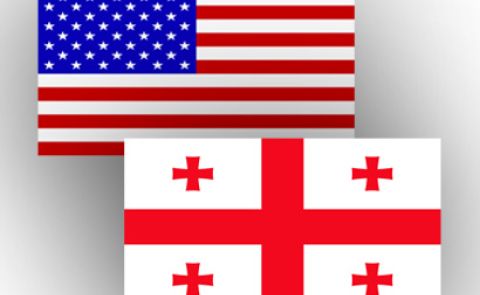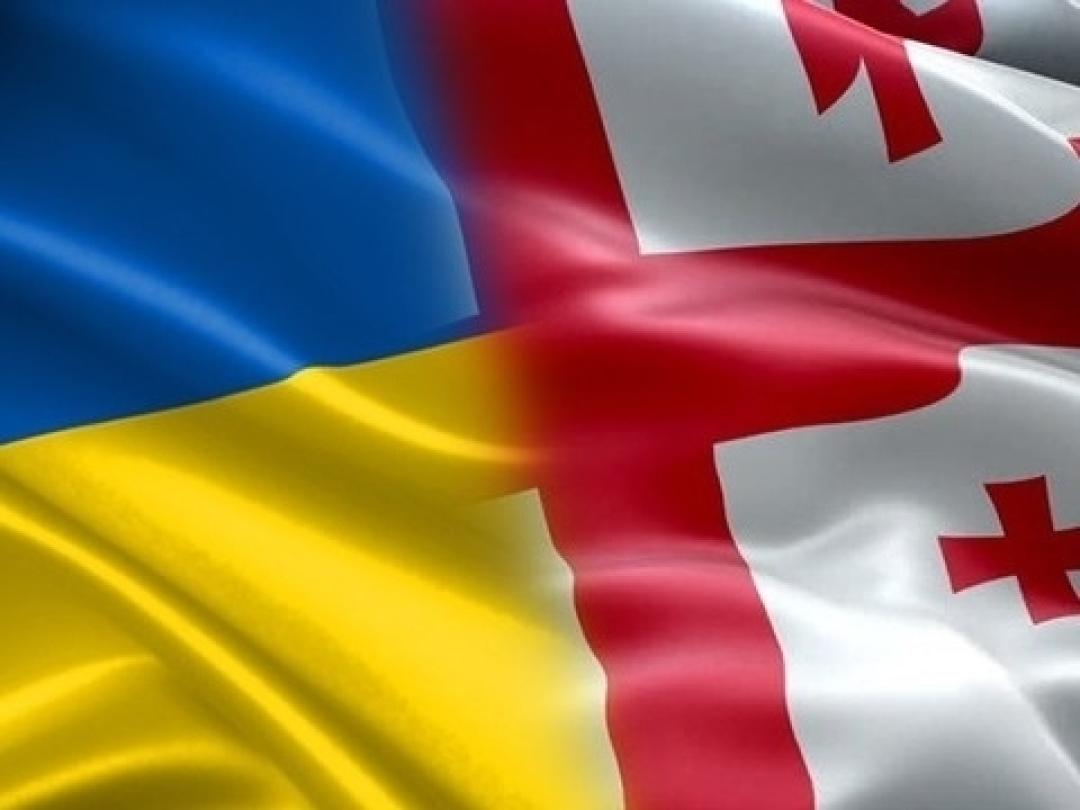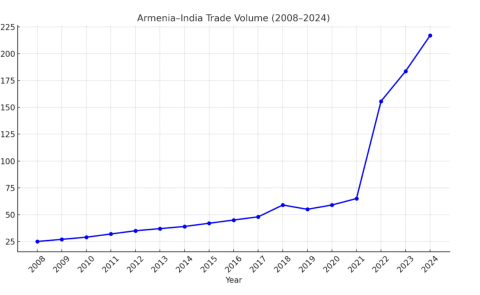
Georgia and Ukraine: From Close Friendship to Cold Ties

The rift in Georgia-Ukraine relations has begun to emerge since the Russian invasion of Ukraine began. The existing trends indicate the ties are unlikely to improve in the near future.
The war in Ukraine has changed Georgia and Ukraine's formerly solid relationship, which is now in shambles. Reasons vary from internal Georgian politics to the shifts in the regional balance of power. Due to Moscow's general strategy of building an exclusive sphere of influence, the two countries have always shared a similar resistance against Russian military invasions.
Therefore, it was natural for Kyiv and Tbilisi to cooperate and turn into close partners, forming an arc along Russia’s southern and south-western borders that could withstand imperial pressure. The creation of GUAM reflected these aspirations. The organization (initially called GUUAM), which aimed at the development of democracy and economic progress, was established in 1997. It served as one of the first regional models that linked the Black and Caspian seas (because of Azerbaijan’s participation), and it had a primarily economic role.
This was a time when the newly independent states were keen to seize a geopolitical initiative in their hands. By that time, Russia was weak, while the West seemed powerful. The participant states of the project were interesting from a geographic point of view. Ukraine, controlling most of the Northern Black Sea littoral, Azerbaijan as a starting point of crucial trade and a resource corridor, and Georgia in between serving as a connection point for the two seas. The GUAM member states shared one common aim of limiting Russian geopolitical influence by exporting their own resources to world markets rather than to Russia.
However, the project failed to materialize. The member states were still heavily dependent on Russian economic, military, and, generally, political benevolence. These circumstances limited GUAM’s effectiveness. Indeed, Uzbekistan withdrew from the project in 2005 and Azerbaijan, Georgia, Ukraine and Moldova, with all their weaknesses, were unable to keep up the prospects of the GUAM project. Moreover, although all member states shared an inner distrust of Russia, they failed to coordinate their foreign policy actions with one another.
As with many similar regional projects, the GUAM initiative remained weak and with the Russian invasion and tensions in Georgia-Ukraine relations might be on the verge of total collapse. One of the rules for regional cooperation projects is that their effectiveness depends on foreign support and the geopolitical situation in the region. The absence of such support further doomed the project.
One might argue, that at present, the geopolitical situation in the South Caucasus and around the Black Sea no longer favors the reinvigoration of the GUAM initiative. All the member states share difficult relations with Russia. Ukraine, Georgia, Moldova, and Azerbaijan have Russian troops on their territories.
Deterioration of Bilateral Ties
Difficulties in Georgian-Ukrainian relations were observed even before the 2022 Russian invasion. A number of former Georgian government (United National Movement) officials relocated to Ukraine after the defeat in the 2012 elections in Georgia. This always caused tensions between the two countries, though differences were glossed over as both remained threatened by Russian actions and unified by a single goal – the “Associated Trio” working together to attain EU membership. The unofficial body consisting of Georgia, Moldova, and Ukraine is aimed at advancing a common pro-Western agenda. Georgia was a leader in terms of reforms implemented and overall prospects regarding its EU/NATO candidacy.
The February invasion of Ukraine, however, changed it all. Many expected Tbilisi to openly support Kyiv. Instead, the Georgian government chose to follow a more nuanced approach. Internal pressure and wider geopolitical motives put Georgia in a precarious geopolitical position. It needed to simultaneously look attentively at how Ukraine-EU ties develop, not anger Russia, and also respond to wider pro-Ukrainian sentiment globally and in Georgia. Many remember how Ukrainian President Victor Yushchenko enthusiastically supported Georgia in 2008 and even visited the capital when Russian troops were just 30 kilometers away. Similar actions were demanded from the Georgian government.
By attempting a nuanced approach, Georgia has taken a significant risk. In an age of unified Western sentiment against Russia, neutrality could be harmful to a country that aspires to become an EU/NATO member. Indeed, hundreds of thousands of people demanded that the Georgian government become more supportive of Ukraine. Tbilisi has indeed supported Ukraine on international fora, provided substantial humanitarian aid and assisted Ukrainian refugees.
Yet, a rift began to emerge between the two countries. Geopolitically, Georgia feared that a successful Russian invasion could lead to Moscow demanding from Tbilisi the change in the country’s constitution, namely the removal of the stipulation on Georgia’s NATO/EU aspirations. The refusal to do so would have pushed Russia to use military force, with likely devastating consequences for the Georgian economy and its population.
Thus, the reticence with which the Georgian side approached the war in Ukraine is not solely attributable to the occasional tensions between the two countries because of internal Georgian politics, but mostly because of wider geopolitical changes. From Tbilisi’s perspective, the balance of power in the wider Black Sea region has further tilted in Russia’s favor. At least this is the ongoing trend, and as long as this scenario persists, Georgia’s position on the war in Ukraine will likely remain cautious and more nuanced.
The likelihood of EU membership is a further factor that has pushed the two sides apart. Ukraine has been granted the candidate status, while Georgia only the European perspective. The “Associated Trio” has thus been unofficially disbanded. Tbilisi is now pursuing a different path, which will likely have further negative repercussions for its cooperation with Ukraine.
Briefly, geopolitical reality and some degree of domestic politics drove Georgia and Ukraine apart. It remains to be seen how long-lasting this trend will be, but based on official statements from both countries as well as the ongoing war, tensions are likely to persist for as long as Russia maintains control over large swathes of Ukrainian land it has occupied since February.
Emil Avdaliani is a professor at European University and the Director of Middle East Studies at the Georgian think-tank, Geocase.
See Also


Armenia and India: Building New Bridges in Trade and Strategy

Between Tehran and Tel Aviv: Azerbaijan’s Neutrality Dilemma Amid Rising U.S.-Israel Tensions with Iran

From Neorealism to Neoliberalism: Armenia’s Strategic Pivot in Foreign Policy After the Nagorno-Karabakh Conflict

Georgia and Russia: New Turn in Bilateral Relations

